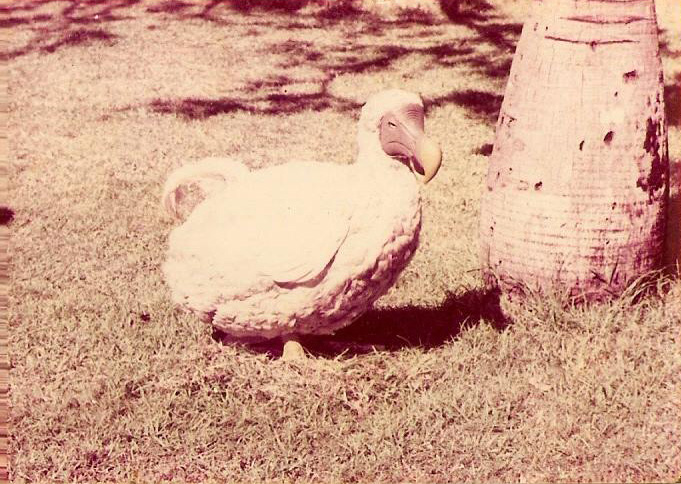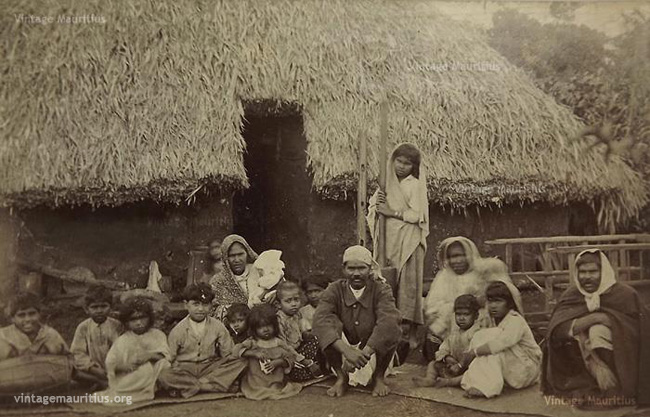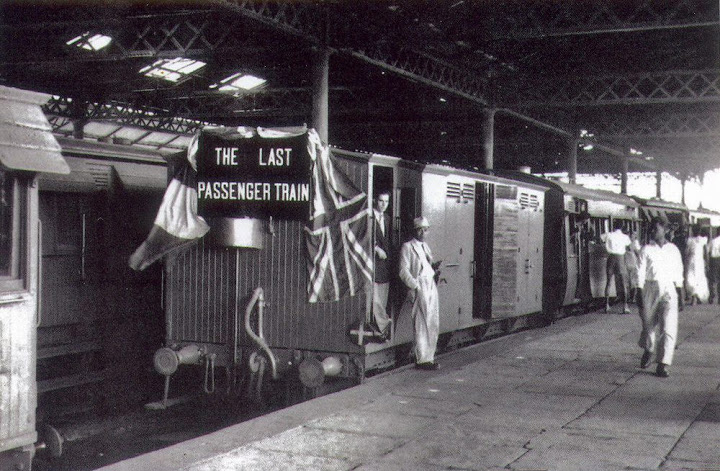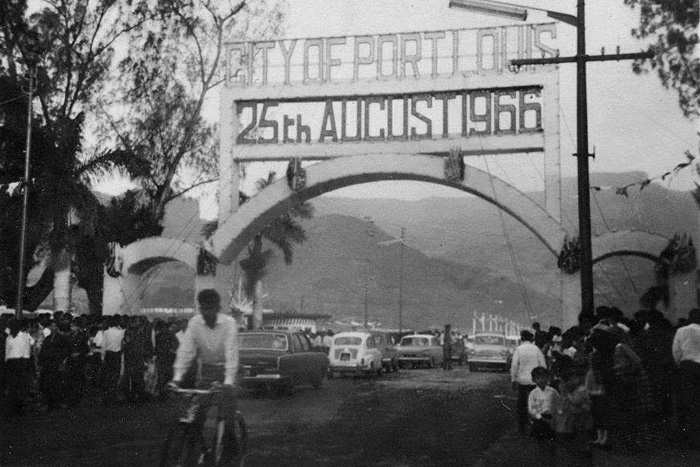10th century – Phoenicians, Malays, Swahili and Arab seamen visit island but do not settle. Island named Dina Robin by Arab mariners.
1498 – Portuguese explorers stumble upon Mauritius in the wake of Vasco da Gama’s voyage around the Cape of Good Hope.
1510 – Portuguese navigator Pedro Mascarenhas visits the island and names it Cirné. It is used as a port of call, but the Portuguese do not establish a permanent settlement.
Early settlement
1598 – Dutch claim the uninhabited island and rename it after their head of state, Maurice, Prince of Orange and Count of Nassau.
1638-58 – Dutch settlement begins, but colony soon fails.
1664-1710 – Second Dutch attempt at colonisation fails. The Dutch withdraw permanently. By this time the dodo – a unique bird found only on Mauritius – has become extinct. Pirates inhabit the island.

1715 – French East India Company claims Mauritius for France, renames it Ile de France.
1721-67 – Settlement begins; Port Louis founded as a base for attacking the British in India.
1767 – French East Indies Company sells Mauritius; control of island transferred to French government.
1796 – Settlers break away from French control when the government in Paris attempts to abolish slavery.
1810 – British forces land in Mauritius after defeating the French in Battle at Vieux Grand Port.
British rule
1812 – Colonel Draper founds the Mauritius Turf Club, which opens the first racecourse in the southern hemisphere and the second oldest in the world.
1814 – Mauritius, Seychelles and Rodrigues ceded to Britain under Treaty of Paris.
1834 – British abolish slavery. It is phased out on the island under a transition period known as “apprenticeship”.
1835 – Indentured labour system introduced. In subsequent decades hundreds of thousands of workers arrive from India.
1847 – Incorrectly-worded Penny Black postage stamps are issued in Mauritius; later they become among the most sought-after stamps in the world.
1864 – Mauritius introduces Railway Transport. The main railway lines began operation.
1866-68 – Malaria epidemic kills more than 40,000 people after Anopheles mosquito accidently introduced.
1876 – Indian rupee becomes official currency.
1892 – Major fire outbreak devastates La Chaussée in Port Louis.
1901 – Mahatma Gandhi visits.
1906 – Telecommunication systems established: Cable link with Reunion and Madagascar. Outbreak of Influenza epidemic, 4000 dead.
1910 – Indentured labour system abolished.
Between 1834-1910, 451,776 Indians were brought to Mauritius to work on the sugar estates, of which 157,639 returned to India.
1913 – First co-operative society founded in Mauritius at Montagne Longue following recommendations of a Royal Commission Report.
1917 – Outbreak of Plague epidemy in Mauritius.
1920 – Last Batch of Indian Immigrants land in Port Louis.

1926 – First Indo-Mauritians elected to government council.
1930 – Mauritius faces severe econimic recession with low prices of sugar on the world market.
1934 – Mauritius introduces first rupee currency.
1936 – Politician Dr Maurice Cure founds Mauritian Labour Party (MLP), or Parti Travailliste.
1937 – Social unrest starts at Union Flacq Estate owned by R.Gujadhur. Workers claim higher wages and protests on the sugar estate; gunshots fired: 4 killed, 6 injured. Rioters demand better economic conditions and participation in government.
Further violence spreads throughout the country with trade union activists.
Pandit Sahadeo put under house arrest and Emmanuel Anquetil exiled to Rodrigues.
1938 – Department of Electricity and Telephones established.
Dockers strike in the port; all activities related to sugar loading paralysed.
Towards independence
1940 – Dr Sir Seewoosagur Ramgoolam nominated by Governor Bede Clifford to represent one of the two indians who represented indian interests in the Government Council.
1942 – Donald Mackenzie-Kennedy becomes governor. Introduces consultative committee which for the first time includes representatives from all Mauritian communities.
1943 – Sugar workers claim more increase in wages. Rioting on Belle Vue estate ending up with gunshots: 3 killed, 16 injured (among, one pregnant woman named Anjalay)
1944 – 3 Successive severe cyclones hit Mauritius causing severe damages to plantations and houses.
First commercial flight between Mauritius and France. Air France inaugurates civil aviation.
1947 – Last “Les Courses Malbar” boycott at Champ de Mars by sugar industry workers.
1948 – New constitution gives the vote to many Indians and Creoles in an enlarged legislature.
1951 – Commonwealth Sugar Agreement signed. Mauritius sells 60% of its sugar production to Great Britain.
1956 – Passenger Railway Transport was ended. On 31 March 1956, the last passenger train waved a final goodbye, even though goods train continued to operate until 1964.
September: Princess Margaret visits Mauritius.

1957 – Internal self-government introduced, with an electoral system based on the Westminster model.
1958 – New constitution – all adults over 21 can vote. Island divided into four single-member constituencies.
1959 – First elections under universal adult suffrage won by MLP, led by Seewoosagur Ramgoolam.
1960 – Two intense Cyclone Carol & Alix devastates island, leaving thousands homeless and prompting a housing revolution.
Family planning introduced to curb growth of birth rate in Mauritius.
1961 – Constitutional conference in London. The PMSD (Parti Militant Socialist Democrate) opposes independence and favors integration with Great Britain.
1964 – Ethnic rioting; In May 1964, Hindu and Creole communities clashed in the village of Trois Boutiques, outside Souillac. One police officer and one Franco-Mauritian were killed. At the same time all railway transport was ended, specially goods transportation, and lines were dismantled.
1965 – Constitutional conference held in London to discuss independence. Labour Party’s delegation plead for independence. PMSD favour association with Great Britain. British side reluctant to grant independence and persuade Dr. Ramgoolam to cede Chagos Islands and evcuation of its inhabitants against Independence.
1966 – Britain drives out some 2,000 residents of the Chagos archipelago, in the Indian Ocean. Many are sent to Mauritius. Britain leases the Chagos islands to the US for 50 years. The US builds a military base on the largest island, Diego Garcia.
August – Port Louis changes status from Town to City

1967 – General Elections towards Independence, Riot in Port Louis; Muslims and Creoles/Chinese clash.
Mass immigration to Australia and Great Britain.
1968 – Ethnic rioting, in early 1968, just six weeks before independence, violence between Creoles and Muslims in the nation’s capital left at least twenty-five people dead and hundreds injured before British troops quelled the fighting. 12 March – Independence.















